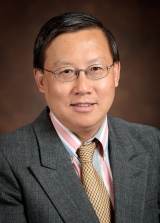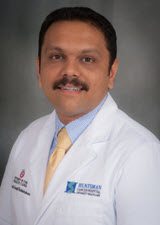New Research Grants - August 2017
|
Hong-hua Mu, MD, PhD
|
Molecular Mechanisms of Autoimmune Arthritis Triggered by Mycoplasma Arthritidis-Derived Agonists Microorganisms have long been considered to be potential etiological agents of human autoimmune diseases, but definitive proof has been lacking. Previously we have discovered that Mycoplasma arthritidis secretes a number of proteins including a unique superantigen, MAM which can trigger a number of severe autoimmune and inflammatory diseases in animals, i.e., collagen-induced arthritis (CIA), autoimmune sera-induced KxB/N arthritis and M. arthritidis-caused arthritis, and mycoplasma-induced septic shock. MAM superantigen activates multiple pathways of the immune system resulting in a surge of inflammatory molecules both systemically and within the joints of arthritic animals. Host endogenous inflammatory molecules are believed to influence disease, but there is no evidence that these alone are sufficient to trigger arthritis. Our proposed plan is to research how exogenous microbial SAg and endogenous inflammatory molecules might work together or synergize to trigger clinical disease in mouse models of autoimmune arthritis and other immune-mediated diseases. We want to understand the molecular mechanisms involved in different types of arthritis controlled by environmental microbial agents, and the role of innate and adaptive immunity that explain exactly how certain microbial infections can lead to immune arthritis. The successful completion of the proposed studies may allow us to develop novel therapeutic strategy for patient care as well as preventive approaches to microbial infection-associated autoimmune arthritis. |
|
Matthew Samore, MD
|
Modeling and Simulation to Support Antibiotic Stewardship and Epidemiological Decision-Making in Healthcare Settings This CDC-funded U01 award addresses the problem of healthcare-associated infections due to antibiotic resistant organisms. The University of Utah will join a network of academic centers that will use computational and mathematical methods to generate new knowledge that this practically useful for prevention of healthcare-associated infection. Our proposal includes two projects: the first uses models and data to examine antibiotic selection for resistant bacteria and the second creates modeling tools that use local data to improve implementation of infection control interventions. |
|
Sabari Venniyil Radhakrishnan, MD
|
Chimeric Antigen Receptor (CAR) T cell therapy for Multiple Myeloma This fellowship was established in 1996 and provides funding to promising young investigators who have strong potential to become productive and successful independent cancer research scientists. Dr. Radhakrishnan’s research focuses on chimeric antigen receptor (CAR) T cell therapy for multiple myeloma. He has generated multiple CAR T cells targeting a multiple myeloma surface antigen and is testing the efficacy of his CAR T cells in a mouse multiple myeloma model system. |
|
Ami Patel, MD
|
Senior Investigator ASH Research Training Award for Fellows This award is designed to encourage junior researchers in hematology, hematology/oncology, and other hematology-related training programs to pursue careers in academic hematology. The RTAF awards $70,000 to fellows in training to provide protected time for clinical, basic, or translational research. In addition, the funds give trainees more time to generate sufficient expertise to be competitive when applying for future funding. |



